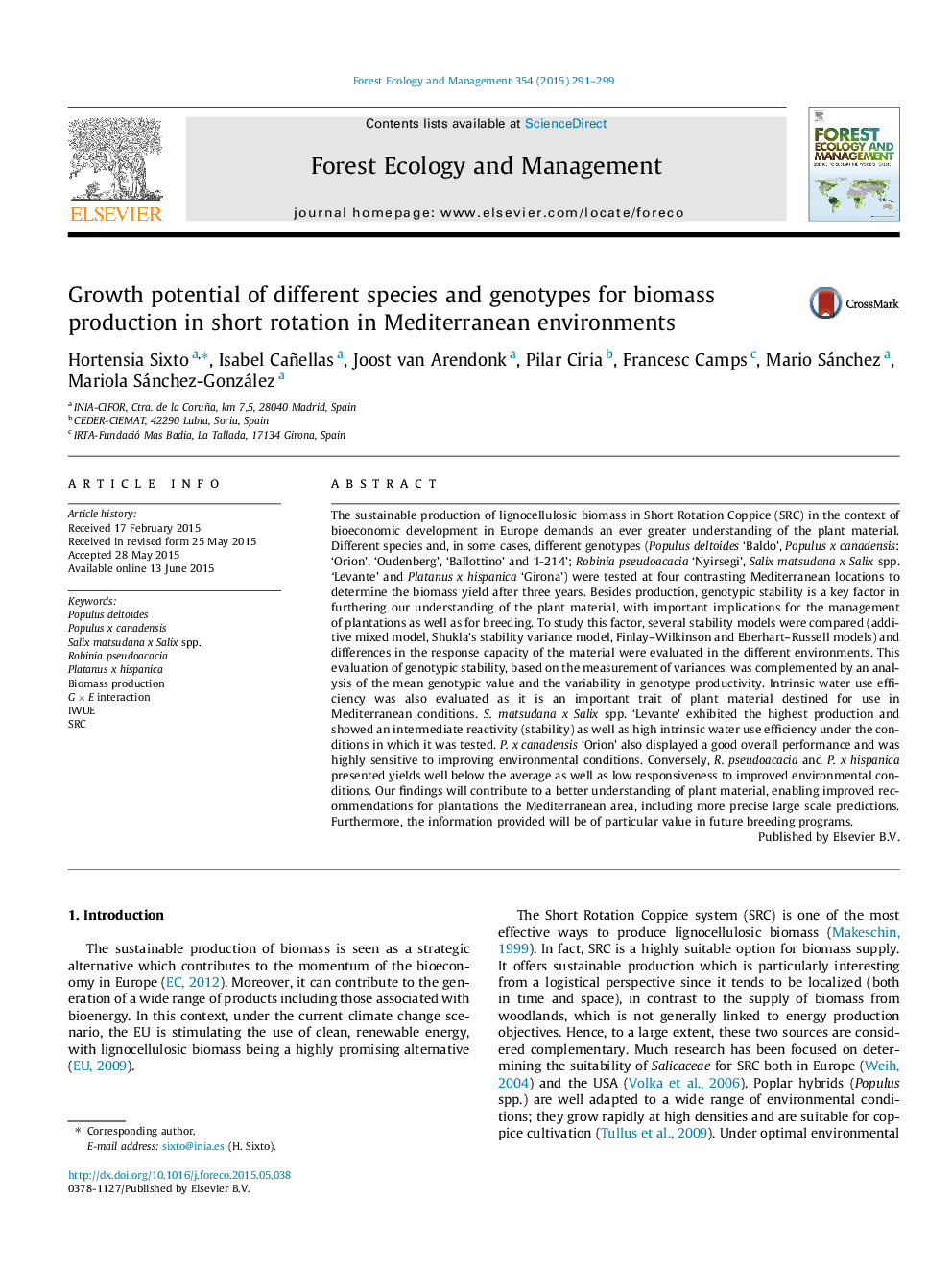| کد مقاله | کد نشریه | سال انتشار | مقاله انگلیسی | نسخه تمام متن |
|---|---|---|---|---|
| 86160 | 159168 | 2015 | 9 صفحه PDF | دانلود رایگان |
• Tree plantations for biomass production in the Mediterranean under a short rotation system were stablished.
• Yield, genotypic stability and intrinsic water use efficient were evaluated.
• Results enable improving recommendations including more precise large scale biomass predictions.
• Findings can contribute to define new idiotypes in future breeding programs.
• Salix genotype is clearly of potential interest for use in the Mediterranean area.
The sustainable production of lignocellulosic biomass in Short Rotation Coppice (SRC) in the context of bioeconomic development in Europe demands an ever greater understanding of the plant material. Different species and, in some cases, different genotypes (Populus deltoides ‘Baldo’, Populus x canadensis: ‘Orion’, ‘Oudenberg’, ‘Ballottino’ and ‘I-214’; Robinia pseudoacacia ‘Nyirsegi’, Salix matsudana x Salix spp. ‘Levante’ and Platanus x hispanica ‘Girona’) were tested at four contrasting Mediterranean locations to determine the biomass yield after three years. Besides production, genotypic stability is a key factor in furthering our understanding of the plant material, with important implications for the management of plantations as well as for breeding. To study this factor, several stability models were compared (additive mixed model, Shukla’s stability variance model, Finlay–Wilkinson and Eberhart–Russell models) and differences in the response capacity of the material were evaluated in the different environments. This evaluation of genotypic stability, based on the measurement of variances, was complemented by an analysis of the mean genotypic value and the variability in genotype productivity. Intrinsic water use efficiency was also evaluated as it is an important trait of plant material destined for use in Mediterranean conditions. S. matsudana x Salix spp. ‘Levante’ exhibited the highest production and showed an intermediate reactivity (stability) as well as high intrinsic water use efficiency under the conditions in which it was tested. P. x canadensis ‘Orion’ also displayed a good overall performance and was highly sensitive to improving environmental conditions. Conversely, R. pseudoacacia and P. x hispanica presented yields well below the average as well as low responsiveness to improved environmental conditions. Our findings will contribute to a better understanding of plant material, enabling improved recommendations for plantations the Mediterranean area, including more precise large scale predictions. Furthermore, the information provided will be of particular value in future breeding programs.
Journal: Forest Ecology and Management - Volume 354, 15 October 2015, Pages 291–299
